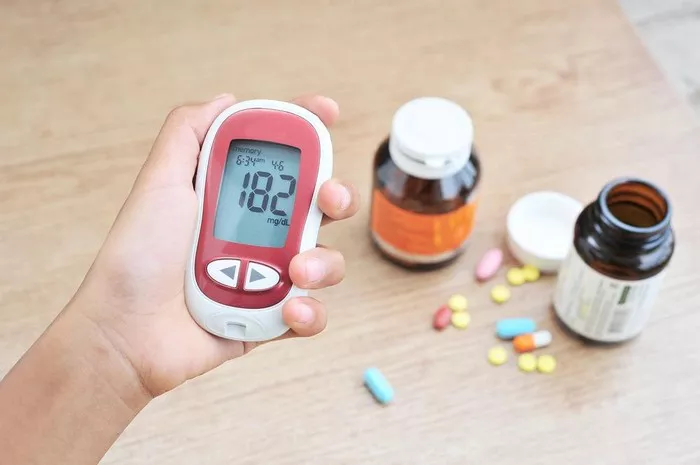Hypoglycemia, often referred to as low blood sugar, is a condition characterized by abnormally low levels of glucose in the bloodstream. It is a common concern for individuals with diabetes, but it can also occur in people without the condition. Recognizing the warning signs of hypoglycemia is crucial for preventing potentially dangerous complications. In this article, we will explore the definition of hypoglycemia, the importance of recognizing its warning signs, common symptoms, variability among individuals, and the necessary steps for managing and seeking medical attention for hypoglycemic episodes.
Importance of Recognizing Warning Signs
Hypoglycemia is defined as a medical condition characterized by blood sugar levels that fall below 70 milligrams per deciliter (mg/dL). Glucose, derived from food, serves as the primary source of energy for the body’s cells. When blood sugar levels drop too low, the body’s ability to function properly is compromised, leading to symptoms of hypoglycemia.
Prompt recognition of the warning signs of hypoglycemia is crucial for preventing potentially dangerous complications. If left untreated, severe hypoglycemia can lead to loss of consciousness, seizures, coma, and even death. By recognizing the early symptoms of hypoglycemia, individuals can take appropriate steps to raise their blood sugar levels and prevent further complications.
Common Symptoms of Hypoglycemia
Hypoglycemia can manifest with a variety of symptoms, which may vary in severity and combination among individuals. Common warning signs of hypoglycemia include:
- Sweating
- Shakiness or tremors
- Palpitations or rapid heartbeat
- Hunger or increased appetite
- Confusion or difficulty concentrating
- Irritability or mood changes
- Dizziness or lightheadedness
- Fatigue or weakness
- Headache
- Blurred vision
- Nausea or vomiting
- Tingling sensations in the lips or tongue
Variability of Symptoms
It is important to note that the severity and combination of symptoms can vary among individuals and may depend on factors such as the rate of blood sugar decline and the individual’s overall health. Some individuals may experience mild symptoms, while others may develop more severe manifestations of hypoglycemia.
Symptom Recognition
Recognizing the warning signs of hypoglycemia involves paying attention to physical sensations and changes in cognitive function or mood. Individuals with diabetes or those at risk of hypoglycemia should familiarize themselves with the common symptoms and monitor their blood sugar levels regularly to detect and address hypoglycemic episodes promptly.
Contextual Factors
Several contextual factors may influence the manifestation of hypoglycemic symptoms. These factors include the time of day, recent physical activity, medication use (especially insulin or diabetes medications), and dietary habits. Individuals should be aware of these factors and take steps to mitigate the risk of hypoglycemia accordingly.
It is important to acknowledge that individuals may experience hypoglycemia differently, and some may have unique or atypical symptoms that are not commonly recognized. Healthcare providers should take into account individual differences when assessing and managing hypoglycemia in patients.
Importance of Blood Sugar Monitoring
Regular blood sugar monitoring is essential for individuals with diabetes or other medical conditions at risk of hypoglycemia. Monitoring blood sugar levels allows individuals to track fluctuations and take appropriate action to maintain stable glucose levels. Individuals should follow their healthcare provider’s recommendations for monitoring their blood sugar levels and adjust their treatment regimen as needed.
Emergency Response
In the event of a hypoglycemic episode, prompt action is necessary to raise blood sugar levels and prevent further complications. Individuals experiencing hypoglycemia should consume fast-acting carbohydrates, such as glucose tablets, fruit juice, or candy, to raise their blood sugar levels quickly. If symptoms are severe or persistent, or if the individual is unable to treat themselves effectively, seeking medical attention is imperative.
Individuals should seek medical attention if they experience severe or persistent symptoms of hypoglycemia or if they have concerns about their blood sugar control. Healthcare providers can assess the individual’s condition, provide appropriate treatment, and offer guidance on preventing future hypoglycemic episodes.
Conclusion
Recognizing the warning signs of hypoglycemia is essential for maintaining optimal health and preventing potentially dangerous complications. By understanding the common symptoms, variability among individuals, and necessary steps for managing and seeking medical attention for hypoglycemic episodes, individuals can take proactive measures to safeguard their well-being and effectively manage their blood sugar levels.
Related Topics:
What Type Of Shock Would Profound Hypoglycemia Cause?























